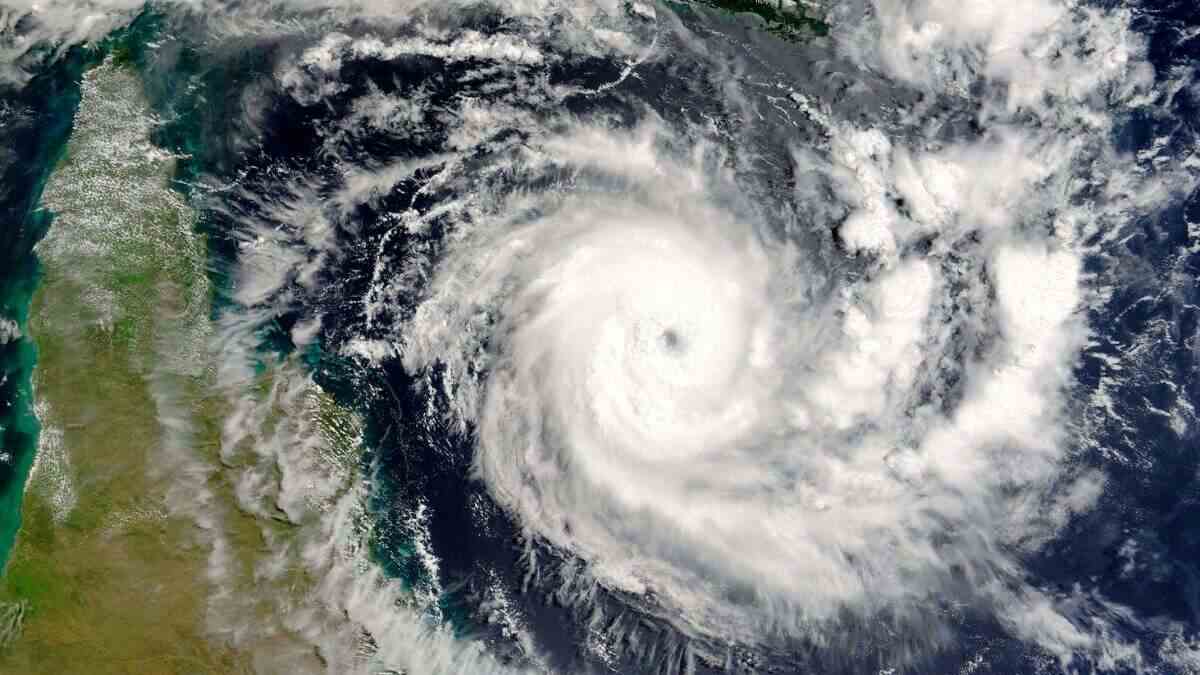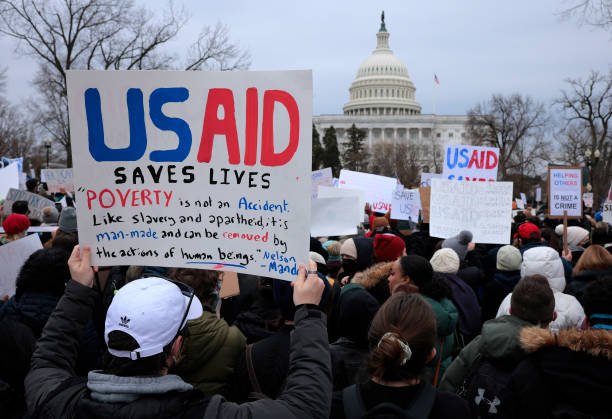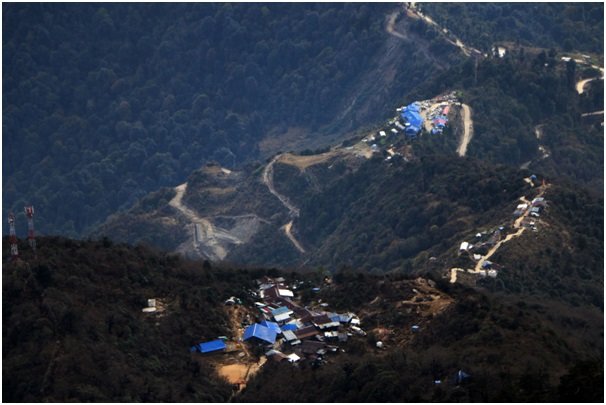Myanmar-Bangladesh: Rohingyas need aid from the world following the deadly cyclone Mocha

The Office of the Commissioner for Refugee Relief and Repatriation has said that more than two and a half thousand houses have been damaged in the Rohingya refugee camp due to the impact of Cyclone Mokha in Cox's Bazar Ukhia-Teknafe. He said, “The damage has been less than feared. However, some houses have been completely razed to the ground. The affected Rohingya will be given immediate assistance.
After the cyclone forecast, many fears were expressed about the residents of the Rohingya camps across the vast area of the coast. As the camps are surrounded by hilly areas, there was no fear of floods, but the biggest fear was landslides. According to information provided by the Office of the Commissioner for Relief, Refugees and Repatriation, as many as 125 houses were damaged in the landslide. Seven people were injured.
280 houses were completely destroyed in the storm, 2 thousand 548 houses were partially damaged. Apart from this, 30 educational institutions and 28 mosques and maktabs have been damaged. A total of 1611 Rohingyas have been affected by the cyclone, according to the Office of the Commissioner for Relief, Refugees and Repatriation. It is also said that a total of more than three hundred trees have been uprooted.
He also said that the most affected families will be helped soon. Nearly a million Rohingya refugees and Bangladeshi communities in three districts are facing the devastating impact of Cyclone Mocha.
Although the impact of the cyclone could have been much worse, the refugee camps have been severely affected, leaving thousands desperately needing help.
The UN and humanitarian partners urgently appeal for aid to address the dire situation, according to a press release issued on Monday.
Cyclone Mocha struck the Bangladesh-Myanmar border on Sunday afternoon, bringing heavy rains, strong winds of up to 115 kilometers per hour, and devastating damage to the fragile infrastructure of Rohingya refugee camps and shelters made of bamboo and tarpaulin.
Initial assessments reveal that thousands of families have been affected and homes and key facilities have been destroyed, especially in the Rohingya camps in the Teknaf area and neighbouring Bangladeshi communities.
The UN and its partners, along with government agencies, are on the ground to provide emergency relief to the affected communities. Rapid assessments are ongoing.
As homes and key facilities were destroyed, immediate priorities include the provision of emergency shelter, clean drinking water, and food supplies and ensuring access to health and sanitation facilities.
The Government of Bangladesh, in close coordination with the UN and its partners, developed a strong preparedness response and continues working tirelessly to provide emergency relief to the affected communities, including women, children, people with disabilities and those more vulnerable to different risks.
The Rohingya refugees themselves have bravely been at the forefront of the cyclone response, with more than 3,000 Rohingya men and women trained and equipped as first responders in fires, floods and cyclones helping their community stay safe before, during and after the cyclone. They helped evacuate people residing in landslide-prone areas and those with specific needs to safer locations within the camps.
“The preparedness efforts of the humanitarian community, led by the Government of Bangladesh, have saved lives. UN agencies and humanitarian partners prepositioned core relief items in the last week, and mobile medical teams were on standby to assist Bangladeshi and refugee communities,” said Gwyn Lewis, the UN resident coordinator in Bangladesh.
“The trail of destruction, with thousands of refugees seeing their shelters destroyed or damaged, requires our urgent response. The UN calls upon donors, NGOs, and individuals to rally in support of all those affected by Cyclone Mocha. Urgent financial contributions and donations of essential relief items are crucial to meet the immediate needs of those affected and to build back better,” said the resident coordinator. "We cannot stand idle in the face of this devastating humanitarian crisis."
This year's humanitarian appeal for the Rohingya Humanitarian Crisis is only 16% funded. Funding shortfalls have already led to a 17% cut in food assistance.
The Rohingya refugees have endured unimaginable hardships, with some thousands losing all their belongings in a huge fire just weeks ago. Cyclone Mocha has only compounded their suffering and made it more difficult to provide lifesaving support to refugees in Bangladesh.
In 2017, more than 700,000 Rohingya fled to Bangladesh to escape the massacre and brutal repression of the army in the Rakhine state of Myanmar. Currently, more than 1.2 million Rohingya are living in various camps in Cox's Bazar and Bhasanchar in Bangladesh. Since the Rohingyas took refuge in Bangladesh, the United Nations has been providing humanitarian assistance to the Rohingya under the Joint Response Plan (JRP). The World Food Organization (WFP) has cut food aid to the Rohingya by about 17 percent as donors reduce aid due to the global economic downturn and crisis. The per capita monthly allocation for food for the Rohingya was $12, which was reduced to $10 from March 1. Now, cyclone Mocha may worsen the situation more.
If new funds are not raised, the amount of aid may decrease further in the coming days. WFP has asked international donors for emergency funds of 125 million dollars this year for relief assistance. The Rohingya are worried that their facilities may be further reduced due to the funding crisis.
Heal, sanitation, rehabilitation are some issues to deal with. The life of the Rohingyas will be more difficult due to the reduction of food aid. As there are no legitimate means of earning in the camps, some of the Rohingyas staying in the camps are involved in criminal activities such as drug smuggling, kidnapping for ransom, human trafficking, and extortion. Currently, Rohingya children and women are at high risk of becoming victims of human trafficking. Which is likely to increase in the coming days. In addition, violence and unrest in Rohingya camps will increase.
Many of the Rohingya will be busy in various ways in search of livelihood and it will be difficult to keep them inside the camp. If the Rohingyas move out of the camp and look for work, it will create a crisis for the local people. Efforts to increase mutual harmony by reducing the distance between the Rohingya and the local people will be disrupted. The emphasis in the JRP on building good relations between the Rohingya and the locals has to be dropped from this year's JRP priority. In 2022, 62 percent of aid came against the JRP's demand. Which is the lowest in previous years. In 2017, 73 percent of the requirement was met, 72 percent in 2018, 72 percent in 2019-75, 65 percent in 2020, and 72 percent of the requirement in 2021. In 2022, humanitarian aid agencies used community protection forums, dialogues, and armed police battalions to prevent conflicts between Rohingya and locals. Worked to increase communication between. Even with reduced funding, the UN wants to run projects cost-effectively without shutting them down. At the same time, the United Nations wants the Rohingyas to be trained so that they can provide their own livelihood by taking the project to increase their skills.
Due to Covid-19, the Russia-Ukraine war, earthquake in Turkey-Syria, above all, developed countries are also in trouble due to the ongoing economic recession around the world and the pressure on their relief funds is increasing. As a result, there is a danger that relief aid will decrease further in the coming days. In this reality, UNHCR funds Gagarde expressed their opinion that they will continue their efforts and successfully implement their programs in the future with more efficiency and cost-effectiveness.
The UN has allocated nearly $9 million from its own funds as donor aid to the Rohingya has dwindled. UNHCR, the United Nations Organization for Migration (IOM), the United Nations Population Fund (UNFPA), the United Nations Children's Fund (UNICEF), UN Women and WFP have started their own support operations with this money in the Rohingya camps in Cox's Bazar and Bhasanchar.
UNHCR has called for $876 million this year to meet the humanitarian needs of the Rohingya. The main objective of this plan is to provide food, shelter, health care, clean water, security services, education, livelihood opportunities and skill development to the Rohingyas and locals sheltered in Cox's Bazar and Bhasanchar. It has been informed by UNHCR that the plan of humanitarian activities will be implemented under the leadership of the Bangladesh government this year.
More than 75 percent of Rohingya are women and children and this population is at risk of gender-based violence and exploitation. Exclusion from, child marriage, child labor and gender-based violence will increase.
To keep these under control, humanitarian and financial support is essential to keep life-saving and life-sustaining support going.
The Swedish government has announced 79 million krona or 7.6 million US dollars in aid for the Rohingyas. Through this grant, the Rohingyas will receive clean fuel for cooking, environmental improvement in Cox's Bazar, and skills and development work for refugees and local Bangladeshis. After the arrival of the Rohingyas in 2017, a large part of the forests of Cox's Bazar were destroyed. Currently, the areas around the Rohingya camps are being re-greened and afforested.
Sweden has been supporting this program led by IOM since the beginning. Currently, Sweden and Canada are supporting this program. South Korea Rohingya to solve the crisis, the displaced Rohingyas think that there is no alternative way but repatriation to Myanmar. South Korea has provided more than 23 million US dollars to protect the Rohingyas who have taken shelter in Cox's Bazar and said that they will continue this humanitarian assistance in this ongoing crisis.
Since August 2017, Japan-Bangladesh has been supporting Rohingyas. The Japanese government has decided to provide 5.7 million US dollars to IOM to improve the living conditions of the Rohingya and refugee communities in Cox's Bazar and Bhasanchar in Bangladesh and to develop shelters.
Japan will continue to work for a durable solution, including the early repatriation of the Rohingya to Myanmar. Japan will continue to cooperate with IOM and other international organizations to ensure a better life for the Rohingya and the locals. This will improve the quality of life of both communities. This assistance will ensure better settlements, protection and livelihood opportunities in Cox's Bazar and Bhasanchar. Through this funding, Japan has provided more than 200 million USD to Bangladeshi NGOs along with IOM and other UN agencies.
A 4.5-million-dollar agreement was signed between the Government of Japan and UNHCR on February 22 to continue the necessary protection and humanitarian assistance to the Rohingya. Japan will continue to cooperate with UNHCR and other service providers for the safe and sustainable return of the Rohingya and to improve their quality of life.
Japan's support in Bhasanchar will help UNHCR expand its activities on education and livelihood resources for the Rohingya. The grant will train more Rohingya teachers and staff to implement Myanmar's curriculum and help the Rohingya develop vocational and other skills. The Japanese government, UNHCR and other UN agencies in Bangladesh It has given more than USD 204 million to NGOs. The United States has announced a new humanitarian aid of 26 million dollars for the Rohingyas. This money has been allocated to the Rohingyas who fled Myanmar and have taken refuge in various countries in the region, including Bangladesh. The total amount of US aid given to Rohingya is 2100 million dollars.
At the Fifth United Nations Conference on Least Developed Countries, the Hon'ble Prime Minister of Bangladesh expressed his opinion that the world's attention has decreased from the Rohingya crisis due to the war in Ukraine, which has made the Rohingya situation more complicated.
The attention of the world community is now on the Russia-Ukraine war and the Ukrainian refugees. Although the Rohingya problem is being discussed, there is no progress in solving the problem because Myanmar has not taken any positive steps regarding repatriation. The condition of the Rohingya camps in Cox's Bazar is not very good. Involved in various crimes, they are also engaged in conflict among themselves. Bangladesh has called for the help of the international community, including the G20 leaders, to speed up the repatriation of the Rohingya to Myanmar.
The prolonged stay of Rohingyas is causing havoc across the region as well as a serious security crisis and they can become a potential target of terrorist groups at any time.
Rohingyas have been staying in Bangladesh for a long time and the repatriation process is still hopeless. At present, many of them are getting involved in various types of crimes due to the urge and temptation of livelihood. With this, if humanitarian assistance decreases, it will become an obstacle in the way of meeting basic needs.
In this situation, if there is no alternative system, they will naturally want to fulfill those needs through illegal means. which is never desirable. The United States is trying to take a joint initiative with the Bangladesh government to create job opportunities in Rohingya camps. Rohingyas need to go out of the camps if they get job opportunities. will not They will consider what training and other things can be done to improve their employability and skills.
In order to solve the mentioned problems, humanitarian and financial aid organizations may have to rearrange their working methods. In order to reduce the administrative costs of the United Nations and international organizations in Cox's Bazar, initiatives should be taken to manage the management locally as much as possible. This cost can be saved by including the local institutions of Bangladesh. In the current situation, a long-term plan needs to be formulated urgently to solve the Rohingya problem. Funding for life-saving and livelihood-supporting projects must continue to keep the situation under control. Adequate measures should be taken to ensure the safety of women and children.
In order to meet the basic needs of the Rohingyas, employment creation and training projects should be undertaken and financed. The situation should be controlled through communication with Myanmar to prevent violence, and drug and arms smuggling. Security of the camp should be strengthened and round-the-clock surveillance should be arranged. Humanitarian assistance should be maintained by establishing new sources of contact with new donors and humanitarian aid agencies. The international community should take measures to provide the necessary assistance in the process of Rohingya repatriation to Myanmar through the pilot project. But till then, they must support the Rohingyas.






Leave Comment